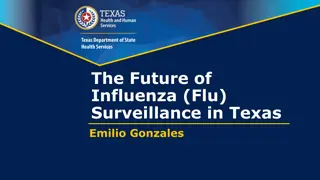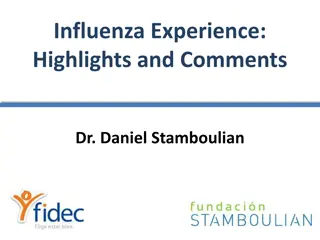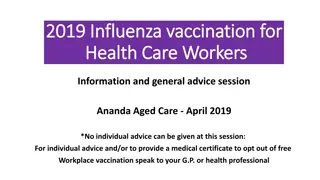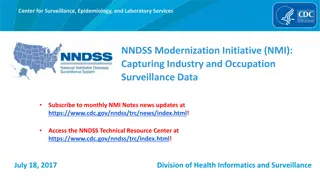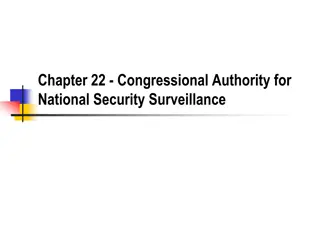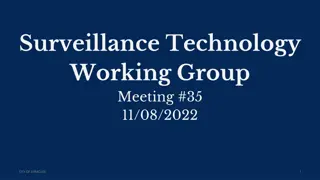Influenza A(H3N2)v at Jackson County Junior Fair 2022
Learn about an Influenza A(H3N2)v outbreak investigation at a fair. Understand the control steps taken and public health recommendations. Discover the partners involved and outbreak timeline details. Explore case definitions and surveillance methods. Popular
0 views • 14 slides
Impact of Highly Pathogenic Avian Influenza 2023 on South African Broiler Industry
The presentation by the South African Poultry Association sheds light on the detrimental effects of Highly Pathogenic Avian Influenza (HPAI) on the broiler industry in South Africa. Factors such as load shedding, water supply interruptions, and now, the outbreak of H7N6, have exacerbated the financi
4 views • 19 slides
Avian Influenza Overview and Outbreak History in South Africa
Avian Influenza, specifically Highly Pathogenic Avian Influenza (HPAI) outbreaks in South Africa, have been documented since 2004, affecting primarily ostriches and poultry. Wild bird transmission remains a concern, with risk factors such as rainfall, temperature, wetlands, and poultry movements con
2 views • 25 slides
United States Influenza Disease Burden by Season
Estimated influenza disease burden in the United States from the 2010-11 season through the 2022-23 season, including symptomatic illnesses, medical visits, hospitalizations, and deaths. The data provides insights into the impact of influenza over the years and preliminary estimates for the upcoming
8 views • 4 slides
Injury Surveillance in Scotland: Importance and Implementation Overview
Scotland's Public Health body, Public Health Scotland, leads efforts in injury surveillance to prolong healthy life, prevent disease, and promote health. Long-term investment in prevention involves various sectors. Injury surveillance is crucial as it helps manage and prevent injuries, with coded da
4 views • 24 slides
Understanding Viral Diseases in Poultry: Newcastle Disease and Avian Influenza
Viral diseases like Newcastle Disease (ND) and Avian Influenza (AI) pose significant threats to poultry farming, impacting bird health and production. ND, caused by Avian paramyxovirus type 1, is highly contagious and manifests in various forms affecting birds' respiratory and nervous systems. On th
7 views • 24 slides
Update on Avian Influenza A(H5N1) Outbreak in the U.S.
Avian Influenza A(H5N1) has been detected in domestic livestock and a few human cases have been reported in the U.S. The CDC issued a technical report detailing the cases and their symptoms. No human-to-human transmission has been identified so far. The situation is being closely monitored and updat
0 views • 17 slides
Understanding Pandemic Influenza: Causes, Impacts, and Preparedness
Influenza pandemics have historically caused significant casualties, with the most notable being the 1918 H1N1 pandemic flu that resulted in approximately 50 million deaths. Understanding how diseases like the flu can cause a pandemic is crucial, including the groups most vulnerable and the necessar
1 views • 15 slides
Understanding Influenza: Key Concepts and Impact on Public Health
Influenza is a contagious respiratory illness caused by influenza viruses, with symptoms spread through droplets in the air or on surfaces. Vaccination and surveillance play vital roles in controlling flu outbreaks. Understanding the structure and types of influenza viruses, along with the importanc
0 views • 16 slides
Collaboration for Efficient COVID-19 Surveillance: NNDSS Case Notifications
Center for Surveillance, Epidemiology, and Laboratory Services is working with Michele Hoover's team to streamline the COVID-19 National Notifiable Diseases Surveillance System (NNDSS) for jurisdictional efficiencies. The timeline showcases the progression from the first CDC-confirmed case to the de
2 views • 20 slides
What is Influenza (Flu) in Children
Influenza, or the flu, is a contagious respiratory illness caused by influenza viruses. In children, it can lead to symptoms like fever, cough, sore throat, runny nose, and body aches. The flu can sometimes cause more severe complications, so it\u201
2 views • 8 slides
Enhancing AFP Surveillance for Polio Eradication in East Africa
This presentation discusses the importance of Acute Flaccid Paralysis (AFP) surveillance in detecting poliomyelitis cases, with a focus on the National Stop Transmission of Polio Mission in Kasese District, Uganda. The goal is to eradicate poliovirus through strategies such as immunization campaigns
0 views • 12 slides
Understanding Orthomyxoviridae: Key Points on Influenza Viruses
Influenza viruses belong to the Orthomyxoviridae family and are major contributors to respiratory epidemics and pandemics. They consist of three genera - Influenza A, B, and C - with distinct morphological characteristics and genetic makeup. By exploring the properties, classification, and morpholog
0 views • 62 slides
Role of Rapid Diagnostic Test for Measles in Global Surveillance
Laboratory-based surveillance is crucial for monitoring and controlling measles outbreaks. The development of new tools like rapid diagnostic tests (RDTs) for measles diagnosis can revolutionize surveillance efforts. Challenges in introducing new diagnostics are discussed, along with the importance
1 views • 30 slides
Harnessing Syndromic Surveillance Systems for Climate-Related Outcomes
Utilizing syndromic surveillance systems can provide valuable insights into the impact of climate change on health outcomes. This document aims to guide users on identifying outcomes, creating case definitions, combining data sources, and engaging with partners for effective climate and health surve
1 views • 28 slides
Comprehensive Overview of Hospital-Acquired Infection Surveillance System
Surveillance systems like HAI surveillance play a crucial role in monitoring and managing hospital-acquired infections (HAIs) by providing baseline rates, comparing data, and identifying problem areas. This system covers various types of infections such as CAUTI, CLABSI, VAE, and SSI, with specific
0 views • 20 slides
Preventing Influenza in Long-Term Care Facilities: Importance of Vaccination and Hygiene Practices
Influenza, commonly known as the flu, is a contagious respiratory illness that can have severe consequences, especially for vulnerable populations like those in long-term care facilities. This post emphasizes the importance of flu vaccination for residents, staff, and visitors, along with good hygie
0 views • 12 slides
Enhancing Infection Surveillance in Long-Term Care Facilities
Explore the importance of surveillance, new definitions, implementation strategies, and outcomes in long-term care settings. Understand why surveillance is essential, how it is performed, population assessment, various surveillance approaches, and selection criteria for processes and outcomes.
0 views • 50 slides
Post Market Surveillance Procedures in Indonesia
Post-market surveillance of medical devices in Indonesia is overseen by the Surveillance Directorate of Medical Device and Household Health Supplies. Manufacturers must adhere to ASEAN guidelines and report adverse events through online systems. The country has specific regulations and requirements
0 views • 10 slides
Texas Influenza Surveillance Overview
In this overview, we delve into the details of influenza surveillance in Texas, covering various aspects such as flu testing, notifiable conditions, and the 2022-2023 flu season review. The information provided includes surveillance structures, reporting requirements, and the vital role of testing i
0 views • 17 slides
Understanding Avian Influenza: Symptoms, Diagnosis, and Prevention
Avian influenza, or bird flu, is a viral disease affecting birds' respiratory, digestive, and nervous systems. It presents in two forms - Highly Pathogenic Avian Influenza Virus (HPAIV) and Low Pathogenic Avian Influenza Virus (LPAIV). The virus has two important surface antigens, Hemagglutinin (H)
0 views • 7 slides
Influenza Vaccination Campaign 2016: Aim, Objectives, and Implementation
The Influenza Vaccination Campaign in 2016 aimed to mitigate the effects of influenza by reducing morbidity and mortality, limiting virus transmission, and easing the burden on the healthcare system. The campaign was managed by a National Coordination Steering Committee, with focus on priority group
0 views • 13 slides
Understanding Surveillance in Biodiversity Conservation
Surveillance plays a crucial role in biodiversity conservation by aiding in the early detection of new incursions and invasive species. It helps in limiting the spread of threats, identifying priorities for action, and assessing prevention system effectiveness through passive and active surveillance
0 views • 24 slides
Understanding Equine Influenza: An Overview of Respiratory Tract Infections in Horses
Equine influenza is a contagious upper respiratory infection in horses caused by influenza viruses. This article covers the anatomy of the equine respiratory tract, signs, diagnosis, treatment, prevention, and prognosis of equine influenza. It also discusses the histological structure of the respira
0 views • 18 slides
Vaccination Status and Influenza Infection Among Pregnant Japanese Women
This study explores the impact of seasonal influenza vaccination on infection rates among pregnant Japanese women, focusing on primiparous and multiparous individuals. It discusses the background of influenza-related complications in pregnant women, presenting data on maternal mortality during the H
0 views • 30 slides
Epidemiology Update on Influenza Surveillance and Activity in Virginia
Providing insights into the influenza season in Virginia, this update highlights the importance of conducting surveillance, data sources for monitoring influenza-like illness, and comparisons of influenza activity levels over multiple seasons. By tracking influenza viruses and their impact, the goal
0 views • 47 slides
Understanding Public Health Surveillance for Population Health
Public Health Surveillance is a vital process for systematically collecting, analyzing, and interpreting health data to inform public health practices. This crucial initiative, developed through the APTR in collaboration with the Brody School of Medicine at East Carolina University, focuses on enhan
0 views • 40 slides
Alaska State Virology Lab Respiratory Virus Surveillance Program
The Alaska State Virology Lab's Respiratory Virus Surveillance Program accepts specimens from across Alaska, ranging from large hospitals to single physician clinics. They collect specimens representing CLI/ILI weekly and are interested in Severe Acute Respiratory Illness samples, among others. The
1 views • 6 slides
Hepatitis E Surveillance and Notifications in Ireland
The surveillance and notification of Hepatitis E cases in Ireland have been detailed, including the introduction of universal blood donor screening, notifiable disease status, and enhanced surveillance measures. The data shows trends in notifications, blood donor screening results, clinical cases, a
0 views • 13 slides
Rally Against Mass Surveillance - StopWatching.Us Event Summary
Edward Snowden's revelations exposed government surveillance on citizens, sparking a rally against mass surveillance on October 26, 2013. The ACLU supports Snowden as a whistleblower, while NSA officials criticize him. The event highlights concerns over privacy, government overreach, and the collect
0 views • 18 slides
Preventing Influenza at [Name of Critical Access Hospital]
Influenza, commonly known as the flu, is a contagious respiratory illness that affects millions annually, leading to hospitalizations and even deaths, particularly among older individuals. The 2016-2017 flu season alone saw staggering numbers of influenza cases and associated medical visits. Protect
0 views • 12 slides
Enhancing Influenza Surveillance in Texas: Strategies and Goals
Emilio Gonzales presents a comprehensive plan for advancing influenza surveillance in Texas, focusing on considerations, goals for the upcoming flu season, and strategies to increase participation in surveillance programs. The plan includes enhancing respiratory disease surveillance, expanding senti
0 views • 15 slides
Understanding Influenza: From Pandemics to Avian Flu Outbreaks
Influenza is a viral respiratory illness that can range from seasonal flu to pandemic outbreaks like the 2009 swine flu (H1N1) epidemic. The dangers and prevention methods of specific strains, such as H5N1 avian flu, have been witnessed since 2003. This summary delves into the characteristics, impac
0 views • 13 slides
Insights into Influenza: History, Pandemics, and Vaccines
Explore the impact of influenza through history, from the 1918 pandemic to current strains circulating. Learn about the disease burden, virus subtypes, and recommended vaccine composition. An overview of Dr. Daniel Stamboulian's contributions and disclosures is included, shedding light on the ongoin
0 views • 14 slides
Importance of 2019 Influenza Vaccination for Health Care Workers
Influenza, commonly known as the flu, is a contagious respiratory illness caused by influenza viruses that can spread through aerosols or surface contact. Common symptoms include fever, headache, fatigue, muscle pain, cough, and sore throat. The flu can be severe, leading to hospitalizations and eve
0 views • 19 slides
Industry and Occupation Surveillance Data Modernization Initiative
The Center for Surveillance, Epidemiology, and Laboratory Services is spearheading the NNDSS Modernization Initiative to capture industry and occupation surveillance data. The initiative includes a new industry and occupation message mapping guide template and the demonstration of the NIOSH Industry
0 views • 32 slides
Congressional Authority for National Security Surveillance under FISA
The Foreign Intelligence Surveillance Act (FISA) was passed in 1978 in response to abuses outlined in the Church Report. The Foreign Intelligence Surveillance Court (FISC) oversees FISA applications, with the ability for government appeal through the Foreign Intelligence Surveillance Court of Review
0 views • 82 slides
Understanding Surveillance: Risks and Implications
Explore the concept of surveillance, its impact on society, and the rise of monitoring devices. Delve into discussions on the effectiveness of surveillance in deterring crime and privacy concerns raised by experts. Understand new words related to surveillance and key vocabulary terms in this thought
0 views • 11 slides
Surveillance Technology Policy and Data Governance 2022 Review
The Surveillance Technology Policy and Data Governance 2022 Review outlines past decisions on various surveillance technologies, public comments, recommendations sent to the Mayor, and updates on the Automatic License Plate Reader (ALPR) technology and other monitoring systems in the City of Syracus
0 views • 18 slides
Methods of Surveillance by Romanian Securitate in the Late 80s
Explore the various surveillance methods employed by the Romanian Securitate in the late 80s to monitor and control writers, including general and priority informational surveillance, individual surveillance files, and the dimensions of the secret archive. Learn about the measures taken by the Secur
0 views • 11 slides


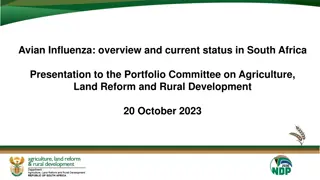
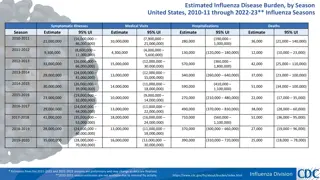

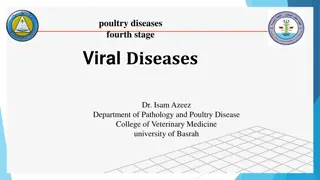
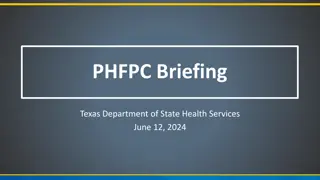

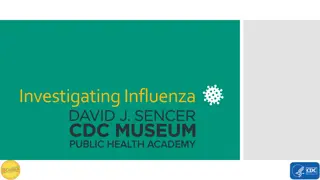
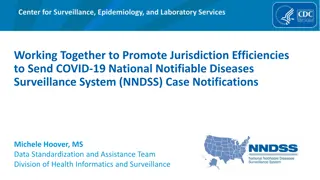
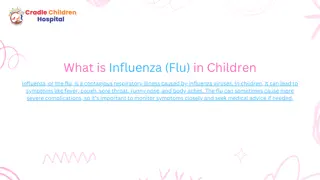
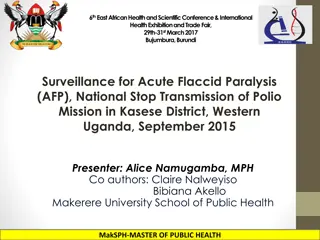

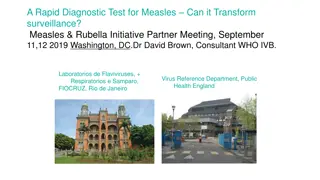

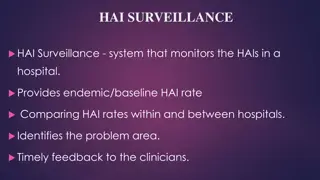
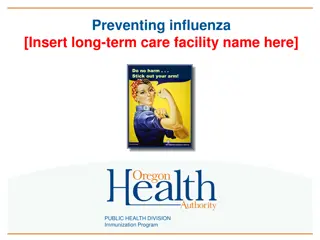
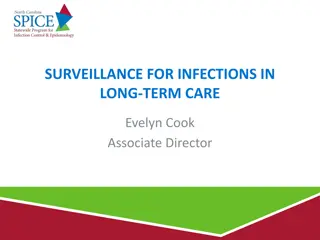
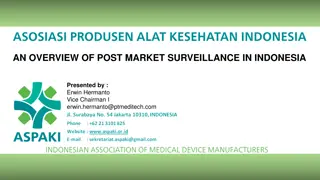

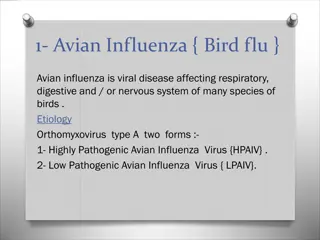
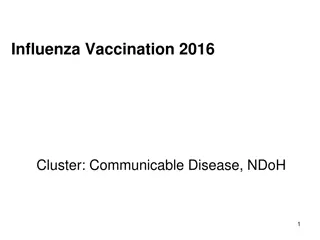
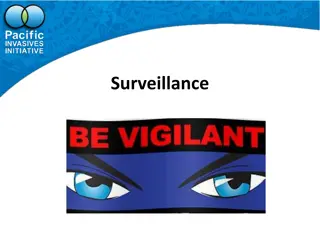
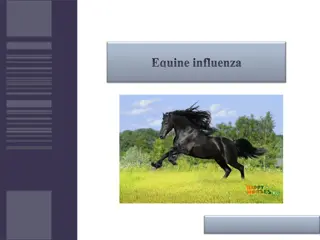
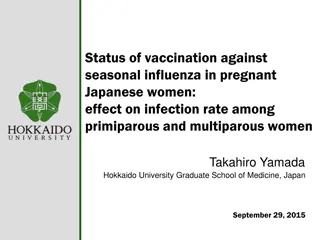
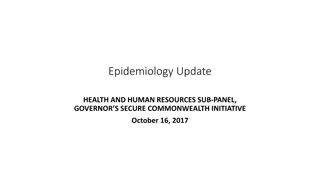
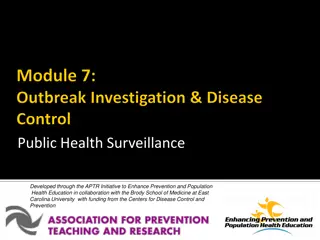
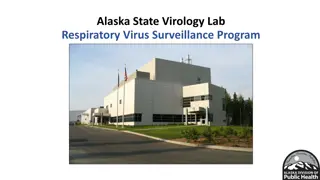
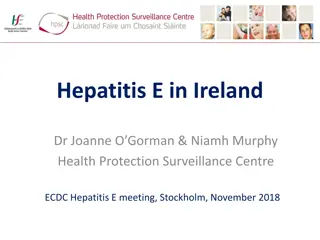

![Preventing Influenza at [Name of Critical Access Hospital]](/thumb/233818/preventing-influenza-at-name-of-critical-access-hospital.jpg)
